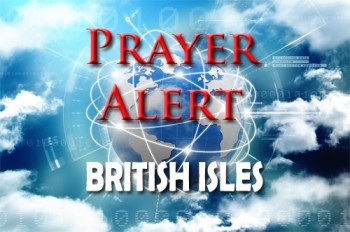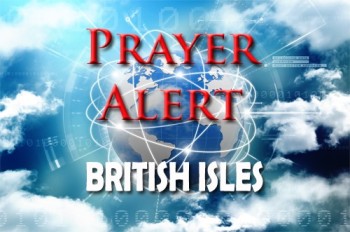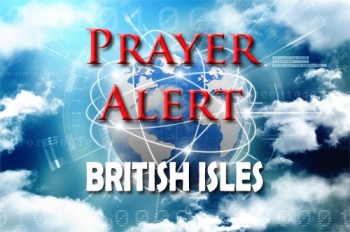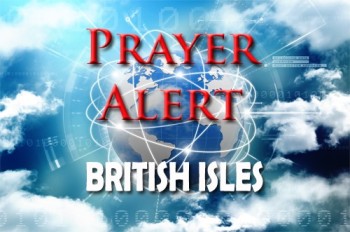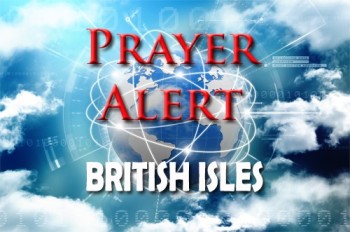Displaying items by tag: Health
NHS: will new cell therapy be a game-changer?
Scientists are pioneering a revolutionary cell therapy that could make the current treatments of autoimmune diseases such as Crohn’s disease and multiple sclerosis obsolete: Led by Professor Ye Htun Oo at the University of Birmingham, the project uses a patient’s own regulatory T cells to retrain the immune system, combating harmful autoimmune responses which lead to organ failure. This innovative approach may soon replace traditional treatments which often cause serious side effects such as hypertension, diabetes, and cancer risk. With more than 8,000 people currently awaiting transplants in the UK, and each procedure costing up to £100,000, the potential savings to the NHS are immense. The therapy, expected to be available within a decade, could transform the treatment of autoimmune liver disease and related conditions, offering hope for longer, healthier lives without dependency on harsh medications. While further trials are needed, experts describe this research as a ‘game-changer’ for modern medicine.
Huntington’s disease: groundbreaking new therapy brings hope to many
Doctors have reported a groundbreaking success in treating Huntington’s disease, a hereditary neurodegenerative disorder that combines symptoms of dementia, Parkinson’s, and motor neurone disease. A gene therapy trial at University College London slowed disease progression by an average of 75%. This means that a decline expected in one year would now take four, offering patients decades of improved quality of life. The therapy, delivered in a single dose through 12–18 hours of intricate brain surgery, permanently reduces production of the toxic huntingtin protein that kills brain cells. Early treatment may even prevent symptoms from developing. Among 29 trial participants, markers of brain cell death decreased instead of rising, and some patients regained independence: one returned to work after medical retirement. For families like Jack May-Davis’s, who lost his father to Huntington’s and carries the faulty gene himself, the breakthrough brings unprecedented hope. While the treatment will likely be costly, researchers call the results ‘spectacular’ and potentially life-changing.
Europe: increasing number of mosquito-borne diseases
The European Centre for Disease Prevention and Control (ECDC) has warned that Europe is entering a ‘new normal’ of longer and more intense mosquito-borne disease transmission. Rising temperatures, extended summers, milder winters, and shifting rainfall patterns have created conditions for mosquitoes to spread viruses more effectively. The chikungunya-carrying mosquito is now established in 16 European countries and 369 regions, compared to just 114 a decade ago. This year, Europe has recorded 27 chikungunya outbreaks, the highest on record, including a case in Alsace, France - an unusual event for such a northern latitude. Meanwhile, West Nile virus has infected 335 people across eight countries, causing 19 deaths, with Italy hardest hit. Officials caution that more Europeans will face risk in the coming years. The ECDC has urged stronger public health coordination and personal prevention measures, including insect repellent, protective clothing, window screens, and bed nets to reduce exposure.
Nigeria: women vaccinators lead the battle against polio
In a camp just outside Lagos, female vaccinators like Eucharia and Aishatu are leading the charge against polio. Though Nigeria was declared free of wild poliovirus in 2020, the country continues to battle outbreaks of vaccine-derived polio (cVDPV), especially in under-immunised and conflict-affected regions. Women have proved indispensable in this effort, often gaining household access where male health workers cannot due to cultural or security concerns. Despite facing mistrust, misinformation, and physical danger, these women build trust through persistence, community dialogue, and personal sacrifice. Many supplement their modest income through small businesses, unintentionally turning polio campaigns into a platform for female empowerment and entrepreneurship. Their efforts have not only improved vaccination rates but also strengthened public health infrastructure and spurred broader social change. While wild polio is now endemic only in Pakistan and Afghanistan, Nigeria’s experience offers vital lessons. Its fight against polio, led by women, supported by community trust, and bolstered by innovative strategies, has reshaped how public health can be delivered in fragile settings.
Sudan: at least forty dead in a week in worst cholera outbreak in years
Doctors Without Borders (MSF) says that Sudan’s Darfur region is facing its worst cholera outbreak in years, with at least forty deaths reported in the past week and more than 2,470 deaths nationwide since August 2024. The crisis has been caused by the two-year war between Sudan’s army and the paramilitary RSP, which has displaced millions and severely restricted access to clean water. In Tawila, 380,000 displaced people survive on an average of only three litres of water a day - less than half the emergency minimum. Contaminated sources, damaged sanitation systems, and mass displacement have accelerated the disease’s spread, which now reaches beyond Sudan into Chad and South Sudan. MSF’s head of mission has warned that heavy rains are worsening conditions: he said, ‘Survivors of war must not be left to die from a preventable disease.’ Without urgent humanitarian intervention, the outbreak threatens to spiral further, endangering countless lives in an already devastated region.
USA: vaccine projects lose funding
The US health department is to cancel $500 million in funding for 22 mRNA vaccine projects targeting viruses such as flu and Covid-19, including those by Pfizer and Moderna. Health Secretary Robert F Kennedy Jr, a vaccine sceptic, claimed mRNA technology poses more risks than benefits for respiratory viruses. Health experts strongly disagreed, noting that the vaccines were pivotal in slowing Covid-19 and saving millions of lives. They warned that withdrawing support undermines one of the most effective tools for pandemic preparedness. Kennedy argued the department would fund alternative vaccine platforms with broader safety records. However, experts say that viruses mutate naturally and that mRNA vaccines are remarkably safe, effective, and faster to develop than traditional vaccines. The decision is part of broader changes Kennedy has made to vaccine policy, including removing Covid vaccines from the recommended immunisation schedule for healthy children and pregnant women.
Norovirus warning: stay at home for 48 hours
The UK Health Security Agency (UKHSA) has issued a strong public warning about norovirus, urging anyone affected to remain at home for 48 hours after symptoms cease, as individuals can still be infectious. Known as the ‘winter vomiting bug’, norovirus causes vomiting, diarrhoea, and severe discomfort. While typically seasonal, England has seen an alarming spike in cases, with 14,959 reported between 31 March and 27 April - more than double the five-year average. Hospital outbreaks are also up 43.3% above historical norms. Though recent weeks show a slight decline, infection levels remain significantly high. Norovirus spreads easily via contaminated food, surfaces, or close contact, and can be transmitted even before symptoms begin. The UKHSA stresses the importance of staying home, avoiding hospitals or GP visits while symptomatic, and refraining from cooking for others until 48 hours after recovery. Parents are advised not to send children to school during this period, and all should practice vigilant hygiene to prevent spread.
ME sufferers feel ‘invisible and ignored' as review shows 62% increase in cases
A new NHS review has revealed that an estimated 404,000 people in England suffer from Myalgic Encephalomyelitis (ME), or Chronic Fatigue Syndrome - a 62% increase from previous figures. The condition disproportionately affects middle-aged women, who are six times more likely to be diagnosed than men, and shows stark disparities across regions and ethnic groups. White individuals are nearly five times more likely to be diagnosed, and in many deprived areas, ME is underdiagnosed or entirely unrecorded. The condition, characterised by post-exertional malaise, brain fog, pain, and exhaustion, has long been misunderstood and underfunded. A national review was prompted by the 2021 death of 27-year-old Maeve Boothby O’Neill, who was left malnourished and unable to speak after years of medical neglect. Her case led to a coroner's unprecedented 'prevention of future deaths' report, demanding urgent reforms in ME care and research. Medical experts and charities are calling for improved training, diagnostic tools, and funding to address this silent health crisis. The NHS, NICE, and government-backed bodies are now reassessing care standards, research, and education for ME across the UK.
Plan for GPs to keep millions out of hospital
The Government is expanding its ‘Advice and Guidance’ scheme to help GPs provide quicker, community-based care and reduce hospital waiting lists. With £80 million in new funding, the goal is to assist two million patients, avoiding unnecessary referrals and offering more convenient treatment for conditions like menopause symptoms, ear infections, and irritable bowel syndrome. The scheme enables GPs to consult directly with hospital specialists before formally referring patients, allowing many to be treated locally. Health minister Karin Smyth says the initiative is part of 'rewiring the NHS’, reducing strain on hospital services while saving patients time. GP surgeries can also claim fees for each use of the system. While the scheme has been welcomed as a step in the right direction, health charities stress the importance of clear communication and patient choice. Medical groups say this must be paired with greater investment and long-term reform to truly safeguard the future of family doctor services.
Nepal: motherhood programme at risk due to lack of funds
The Safe Motherhood Programme, which has drastically reduced maternal and neonatal mortality in Nepal, is at risk due to severe funding shortages. Rs 380 million (£2 million) is urgently needed to reimburse hospitals and continue essential services. An additional Rs 600 million (£3.3 million) will be needed this fiscal year to sustain operations. Launched two decades ago, the programme offers free delivery services, antenatal checkup incentives, and transportation allowances. It helped raise institutional deliveries from 18% to 80% and cut the maternal mortality rate from 539 per 100,000 live births in 1996 to 239 by 2016. However, nearly 130 maternal deaths have already occurred in the current fiscal year. The WHO has warned that progress toward the goal of reducing maternal mortality to 75 per 100,000 by 2030 could stall without immediate investment. The report stresses that broader efforts, like ensuring girls’ education, improving family planning, and tackling health inequalities, are crucial to safeguarding maternal and newborn lives.
